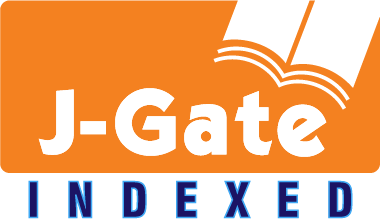Distance education through the eyes of postgraduate students during the covid-19 epidemic
DOI:
https://doi.org/10.26809/joa.6.4.06Keywords:
COVID19, Distance Education, University, Master's Degree, Postgraduate EducationAbstract
In this study, the distance education experiences of graduate students during the COVID19 epidemic were discussed. Within the scope of the study, an online questionnaire was applied to students enrolled in a graduate program at Marmara University in the 2020-2021 academic year and 501 students shared their opinions. The students participating in the survey are in the 23-56 age group, 59% are male, 41% are female, 24% are married and 66% work in a job. 71% of the students are enrolled in social sciences, while 19% enrolled in science, 8% enrolled in health sciences and 11 students enrolled in fine arts programs. 74% of them are studying in a thesis program while 26% of them are studying in a non-thesis program.
Within the scope of the study, the relationship structure between the students' perspectives on distance education that they experienced during the COVID-19 epidemic; and their demographic characteristics, the field of education (social, science, health sciences and fine arts) and the type of program (with or without thesis) were investigated, and their preferences on type of education for the post-epidemic period were examined.
It is understood that the epidemic period is perceived as an educational opportunity, especially by masters students studies without thesis. In terms of the field of the master's program, since distance education will be applied, the weight of those who decide to do a master's degree is observed at the highest level in the field of science. While gender was not effective on distance education experiences of graduate students; marital status, working status and age variables were found to be effective. It has been understood that distance education has been adopted by graduate students very quickly and at the graduate level, it will be a demanded form of education after the epidemic was over.
Downloads
References
ABREU, A., COSTA, E., & PAIVA, J. (2021). Distance Learning in Higher Education during the COVID-19 pandemic: A Systematic Literature Review. . Research Bulletin (Cadernos de Investigação) of the Master in E-Business.
ADNAN, M., & ANWAR, K. (2020). Online Learning amid the COVID-19 Pandemic: Students' Perspectives. . Online Submission 2(1), 45-51.
ALPAR, R. (2013). Uygulamalı Çok Değişkenli İstatistiksel Yöntemler. Ankara: Detay Yayıncılık.
APPOLLONI, A., COLASANTI, N., FANTAUZZI, C., FIORANI, G., & FRONDIZI, R. (2021). Distance Learning as a Resilience Strategy during Covid-19: An Analysis of the Italian Context. Sustainibility, https:// doi.org/10.3390/su13031388.
ARIK, S. (2021). Distance Education Learning Environments During COVID-19 Pandemic from Student Perspectives: A Study in Turkish Higher Education. Journal of Pedagogical Research, 103-118.
ARAR, T., ÖNEREN, M., & YURDAKUL, G. (2021). Covid-19 Kapsamında Uzaktan Eğitim Sürecinin Lisansüstü Öğrencilerin Algısındaki Yeri: Kırıkkale Üniversitesi Örneği. Üniversite Araştırmaları Dergisi, 154-167.
BENZER, S., & AKKAYA, M. M. (2021). Pandemi Sürecinde Fen Bilimleri Alanında Uzaktan Eğitim. Sosyal Bilimler Elektronik Dergisi, 19-46.
CHURIYAH, M., SHOLIKHAN, S., FILIANTI, F., & SAKDIYYAH, D. (2020). Indonesia Education Readiness Conducting Distance Learning in Covid-19 Pandemic Situation. International Journal of Multicultural and Multireligious Understanding, 491-508.
DIDENKO, I., FILATOVA, O., & ANISIMOVA, L. (2021, Ocak). Covid-19 Lockdown Challenges or New Era for Higher Education. https://revistas.usil.edu.pe/index.php/pyr/article/view/914 adresinden alındı
ERDEM AYDIN, İ. (2021). Öğrencilerin Acil Uzaktan Öğretim Uygulamasına İlişkin Görüş ve Önerilerinin Ekolojik Sistem Bağlamında Değerlendirilmesi. Açıköğretim Uygulamaları ve Araştırmaları Dergisi, 35-64.
GENÇ, S. Z., ENGİN, G., & YARDIM, T. (2020). Pandemi (COVID19) Sürecindeki Uzaktan Eğitim Uygulamalarına İlişkin Lisansüstü Öğrenci Görüşleri. Atatürk Üniversitesi Kazım Karabekir Eğitim Fakültesi Dergisi, 134-158.
HAIR, J., BLACK, W., BABIN, B., & ANDERSON, R. (2010). Multivariate Data Analysis: A Global Perspective. New Jersey: Pearson.
JADHAV, V., BAGUL, T., & ASWALE, S. (2020). COVID-19 Era: Students ' Role to Look at Problems in Education System during Lockdown Issues in Maharashtra, India . International Journal of Research & Review (IJRR), 327-332.
KAUR, G. (2020). Digital Life: Boon or Bane in Teaching Sector on COVID-19. CLIO an Annual Interdisciplinary Journal of History, 416-427.
MACH, L., & PONTING, J. (2021). Establishing a pre-COVID-19 Baseline for Surf Tourism: Trip Expenditure and Attitudes, Behaviors and Willingness to Pay for Sustainability. Annals of Tourism Research Empirical Insights.
ROSİNSKA, E., & ZHURAVSKA, O. (2021, Ocak). Satisfaction with Distant Learning and end - of – Course Productivity Research Gate: https://www.researchgate.net/publication/350917822_SATISFACTION_WITH_DISTANT_LEARNING_AND_END-OF-COURSE_PRODUCTIVITY adresinden alındı
SALTA, K., PASCHALIDOU, K., & TSETSERI, M. (2021). Shift From a Traditional to a Distance Learning Environment during the COVID‐19 Pandemic. Science & Education.
TÜZÜN, F., & YÖRÜK TOROMAN, N. (2020). COVID19 Sürecinde Uzaktan Eğitim Öğrenci Memnuniyetini Etkileyen Faktörlerin SEK Yöntemi ile Analizi. International Conference on Distance Learning and Innovative Educational Technologies (s. 302-317). Ankara: Başkent Üniversitesi Uzaktan Eğitim Uygulama ve Araştırma Merkezi.
TADESSE, S., & MULUYE, W. (2020). The Impact of COVID-19 Pandemic on Education System in Developing Countries: A Review. Open Journal of Social Science, https://www.scirp.org/journal/paperinformation.aspx?paperid=103646.
THOMAS, C. (2020). Coronavirus and Challenging Times for Education in Developing Countries. Washington DC: The Brookings Institution.
TOTI, G., & ALIPOUR, M. A. (2021). Computer Science Students’ Perceptions of Emergency Remote Teaching: An Experience Report . SN Computer Science, 370-378.
UNESCO. (2020). Distance Learning Solutions. UNESCO. https://en.unesco.org/covid19/educationresponse/solutions. adresinden alındı
VEGAS, E. (2020). School Closures, Government Responses, and Learning Inequality around the World during COVID-19. Washington DC: The Brookings Institution, https://www.brookings.edu/research/school-closures-government-responses-and-learning-inequality-around-the-world-during-covid-19/.
Downloads
Published
How to Cite
Issue
Section
License
Copyright (c) 2021 Holistence Publications

This work is licensed under a Creative Commons Attribution 4.0 International License.
When the article is accepted for publication in the Journal of Awareness, authors transfer all copyright in the article to the Rating Academy Ar-Ge Yazılım Yayıncılık Eğitim Danışmanlık ve Organizasyon Ticaret Ltd. Şti.The authors reserve all proprietary right other than copyright, such as patent rights.
Everyone who is listed as an author in this article should have made a substantial, direct, intellectual contribution to the work and should take public responsibility for it.
This paper contains works that have not previously published or not under consideration for publication in other journals.











